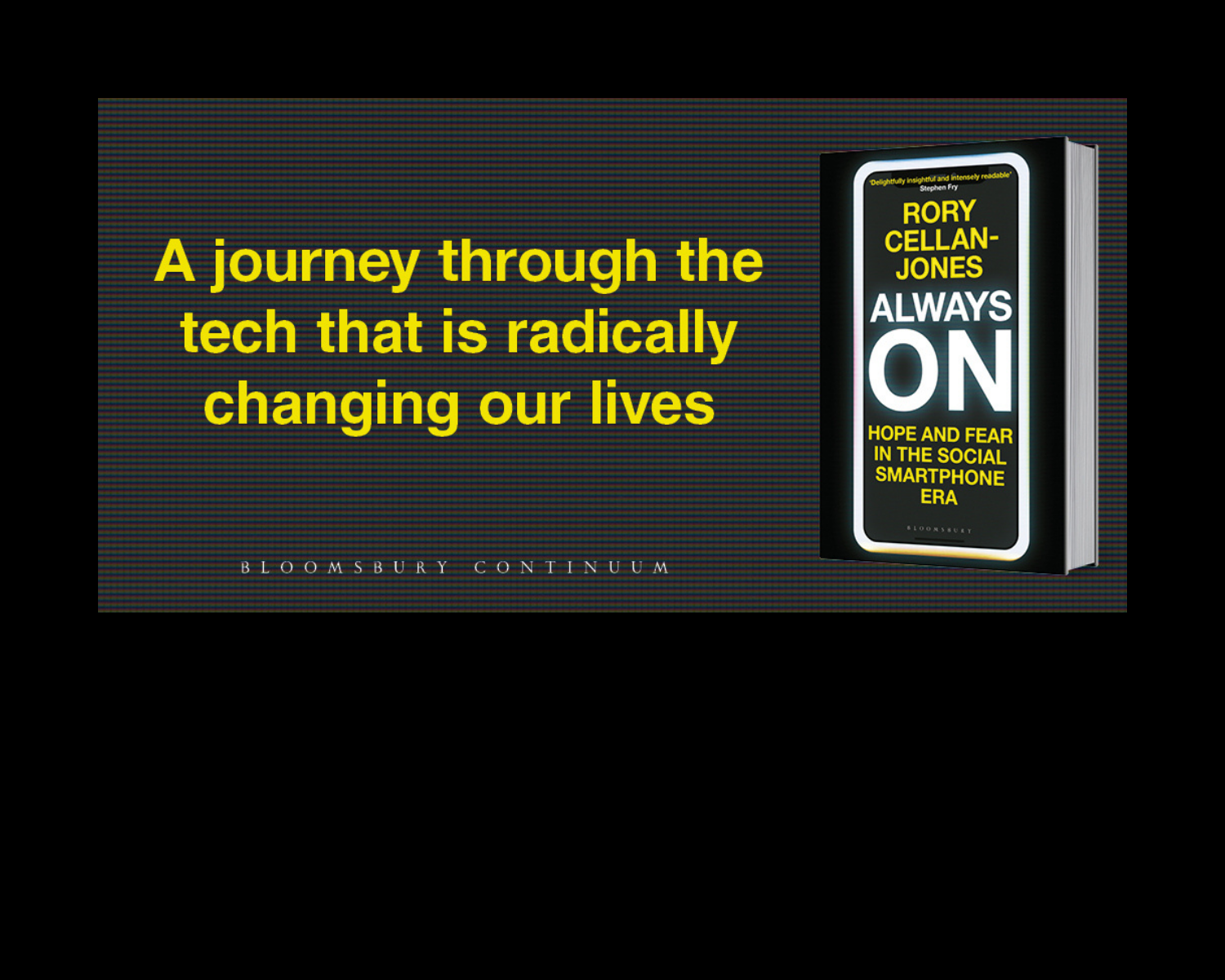
Propeller Group welcomed renowned BBC technology correspondent Rory Cellan-Jones to its latest instalment of ‘Wallflowers at the Orgy’, our event format that puts senior journalists in the spotlight and asks them the questions in a role reversal.
The eye catching title Wallflowers at the Orgy is a reference to the late US writer and novelist Nora Ephron who once said: “Working as a journalist is exactly like being the wallflower at the orgy… everyone else is having a marvellous time, laughing merrily, eating, drinking, having sex in the back room, and I am standing on the side taking notes.”
With the release of Rory Cellan-Jones’ latest book, ‘Always On: Hope and Fear in the Social Smartphone Era’, we took the opportunity to quiz the reporter on his encounters with tech titans, unveiling of revolutionary devices and the wider effects tech has had on society. Our exclusive gathering of senior leaders invited from our network all had the chance to interact with and pose questions to Rory and the event was chaired by Propeller Managing Director Kieran Kent.
Attendees included:
• Luke Smith, Founder and CEO, Croud
• Dennis Kayser, Founder and CEO, Forecast
• Paul Reynolds, Managing Director and Partner, MassiveMusic
• Victoria Perea-Usher, VP Marketing Communications, JCB
• Lucas Brown, Chief Strategy Officer, Total Media
• Rebecca Crook, Chief Growth Officer, Somo Global
• Wulfric Light-Wilkinson, General Manager EMEA, Wunderkind
• David Coombs, CEO, Cheil UK
• Ed Ratcliffe, Head of Public Affairs, techUK
• Melissa Law, Global Head of Marketing, Poq Commerce
• Denis Crushell, Chief Revenue Officer, Tubular Labs
• Parveen Dhanda, Head of Programmes, Tech Nation
• Mahesh Desai, Client Relationship Officer, EMEA, Rackspace Technology
• Carolyn Corda, CMO, ADARA, Inc.
• Martin Loat, Chairman, Propeller Group
• Kieran Kent, Managing Director, Propeller Group
“A French peasant holding a piece of the one true cross” is how John Norton described Rory’s first press image displaying the iPhone for the BBC in 2007. The report in itself roused some viewers to question why the public broadcasting body was essentially advertising a product. Rory likened the iPhone’s impact to that of another historical event. “Imagine the BBC had been around for the release of the Model T Ford, would we have covered that – and would that have been plugging a product?”
As it turned out, Rory was justified in his analogy.
Leadership in Tech
When describing his own interactions with the most famous tech leaders, Rory pointed out that many are driven and committed to their vision. Recounting an interview with Mark Zuckerberg at the height of the financial crisis in 2008, he questioned why the tech mogul had not sold his company for the $10 billion offered by Microsoft, where Zuckerberg responded “What am I going to do – sit by the pool for the rest of my life?”.
Driven leaders hold a vision for their companies unlikely to be compromised by financial incentives or cultural pressures. Rory points to Google, and how despite its ‘easy going’ leadership under Sundar Pichai, the company has still faced diversity and cultural issues within the workplace, exposing the lack of correlation between headstrong leadership, and the perceived effect on company culture and morale.
Potential British Unicorns
Regarding the prospect of Britain producing a ‘unicorn’ company, Rory pointed to many sectors with promising potential, namely fintech and medtech.
However, building such a company takes a specific set of conditions, namely a great deal of time and less strict, short term expectations from investors – which is a rare combination.
Regulation of social media
Social media platforms are having to deal with the repercussions of their early laissez-faire attitudes towards the regulation of their users. Rory explained that the early failure to tame the ‘Wild West’ libertarian nature of the internet has prompted the threat of government imposed legislation and fines.
Recent petitions calling for mandatory ID for sign-up may offer a simple solution, but fail to address the more complex nature of internet safety and wider repercussions such measures may hold on accessibility and availability. Tech giants in their own right believe more technology to be the answer. However, Rory later stresses that “we are talking about wider societal problems, where the solution lies beyond technology in many ways.”
AI’s impact on the consumer level in the next few years
Rory expressed his concerns on the already present implementations of AI and Machine Learning that dictate several aspects of our lives without our realising. Algorithms can lead users down rabbit holes, further radicalising individuals and unconsciously ingraining biases. “We can be harmed by the algorithms that decide whether you’re worth a second interview or not. And we just don’t know what has gone into that. We need to know what is going on below the surface, and therefore it is a journalist’s job to talk about it and point it out.”
Do you think tech has delivered on its promises?
“The tech revolution that has been extraordinary in many ways was also quite trivial, it’s been about communication but it should be bigger and grander. I remain optimistic about technology – but I think we need a bigger vision.”
You can find Rory’s book over at the following link. Apply the following code at checkout for a discount: ALWAYSON25
Please do consider donating to Rory’s fundraising efforts for Parkinson’s research over at the following link.